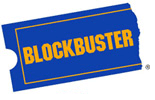 It’s great that developers for Google’s mobile operating system Android have “risen to the challenge,” as a Google-ite said on the Android Developers Blog late Thursday. Google has received nearly 1,800 submissions from 70 countries for its Android Developer Challenge.
It’s great that developers for Google’s mobile operating system Android have “risen to the challenge,” as a Google-ite said on the Android Developers Blog late Thursday. Google has received nearly 1,800 submissions from 70 countries for its Android Developer Challenge.
But at least one developer we know has ditched Android for the time being because his investors are demanding results, and so far he cannot deliver an Android solution in tandem with actual working hardware.
Peter Wojtowicz, the mastermind behind the Wi-Fi Army mobile game, announced early this year that his team would be developing the revolutionary game in Android, which generated a lot of interest from gaming, mobile, and Android blogs around the world.
Because Wi-Fi Army is cutting edge, combining a cell phone’s camera with Wi-Fi, bluetooth, location-based service, a back-end server architecture, and a slew of other complexities, investors interested in supporting his team have demanded proof-of-concept results that Wojtowicz cannot deliver with actual working Gphones. Adding to the frustration, Wojtowicz is often delayed when one Android SDK release isn’t compatible with an older one, forcing the team to lose time backtracking.
Time is something Wojtowicz doesn’t have as he — and others — are racing to get their next-generation games to market as quickly as possible. For the time being, Wojtowicz’s team is developing Wi-Fi Army simultaneously in Microsoft’s Windows Mobile and Symbian; he expects to start work on the iPhone when Apple releases the SDK in June.
“It would be a lot easier with the (Google-powered) phone in hand,” Wojtowicz said.
Continue reading »






 Music futurist Gerd Leonhard has just
Music futurist Gerd Leonhard has just  It seems like a straight forward proposition, but there’s
It seems like a straight forward proposition, but there’s  The latest company thought to be readying its own Internet TV set-top box plans is Blockbuster,
The latest company thought to be readying its own Internet TV set-top box plans is Blockbuster,